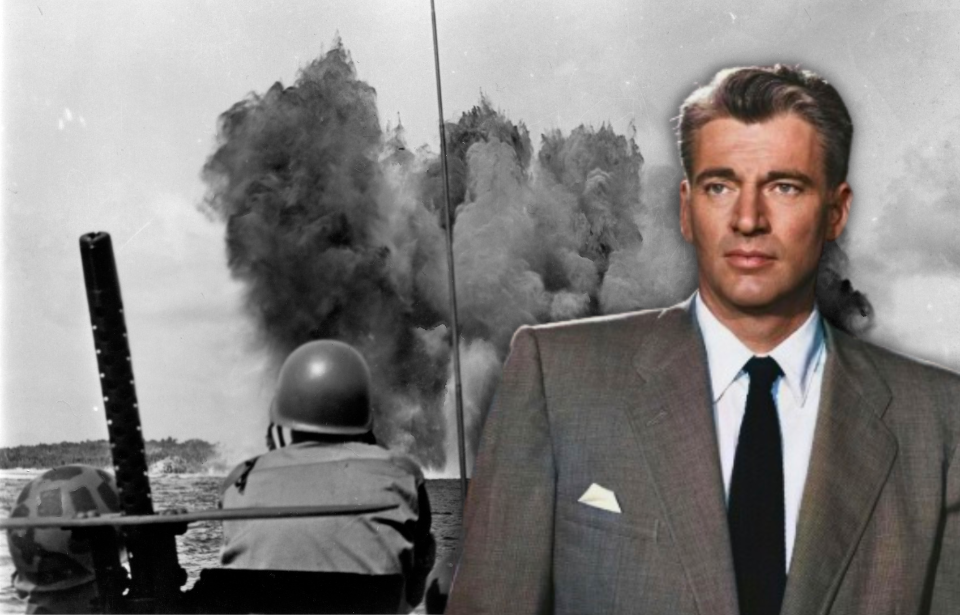American actor William Hopper is best remembered for his decade-long portrayal of Paul Drake in the original television run of the popular courtroom drama, Perry Mason (1957-66). He had an interesting and rather unique Hollywood career, thanks to his notorious mother. It also included a brief pause, when he answered the call of duty following the US’ entry into the Second World War.
William Hopper was born to celebrity parents
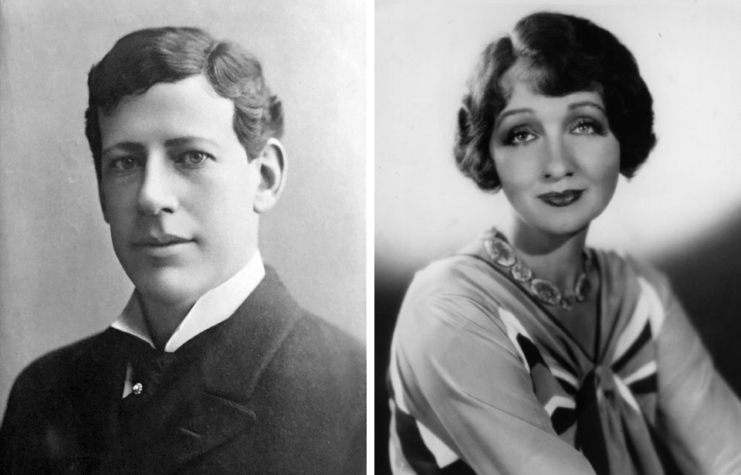
William Hopper was born on January 26, 1915 to celebrity parents. Each had their own respective talents and connections to show business. His father, DeWolf Hopper, was a vaudeville and musical theater actor, singer and producer best known for performing the popular Ernest Thayer poem, Casey at the Bat.
Hopper’s mother, Hedda, was an actress until she and DeWolf split in 1922. She then moved with her son to Hollywood, where she became one of the greatest gossip columnists the United States had ever seen, and was one of the most influential voices in the business.
Hopper didn’t have much of a relationship with his father, who was 57 years old when he was born. The one he had with Hedda was tumultuous, with her constantly pressuring him to pursue an acting career, which he resisted.
William Hopper’s pre-war acting career
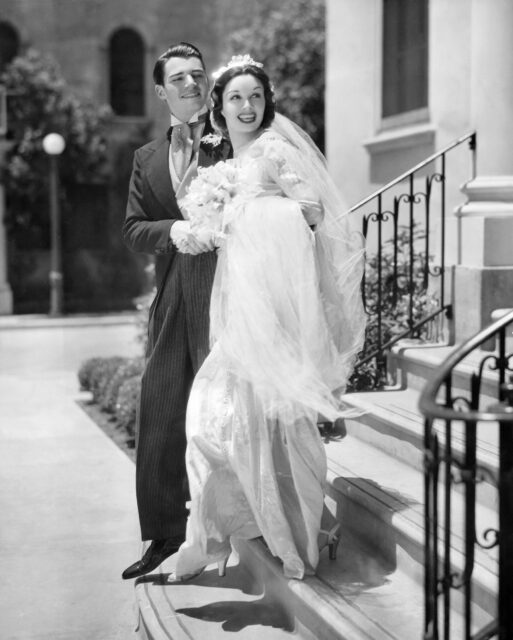
William Hopper’s earliest acting credit was when he was just a baby, in one of his father’s silent films, Sunshine Dad (1916). After moving to Hollywood with his mother, he took to the stage, but worked hard not to get involved in the acting scene Hedda was so familiar with.
Hopper continued to pick up roles, and became a pretty well-known actor in the 1930s after landing a contract with Paramount Pictures. Although he was shy and a little frightened when it came to appearing in front of the camera, he still managed to get the male lead in both Public Wedding (1937) and Over the Goal (1937).
Even after landing several more acting roles, Hopper still wasn’t comfortable. He later said the only reason he became an actor was “because it seemed the easiest thing to do and because it was expected of me. But it stunk.”
Serving with the US Navy during the Second World War
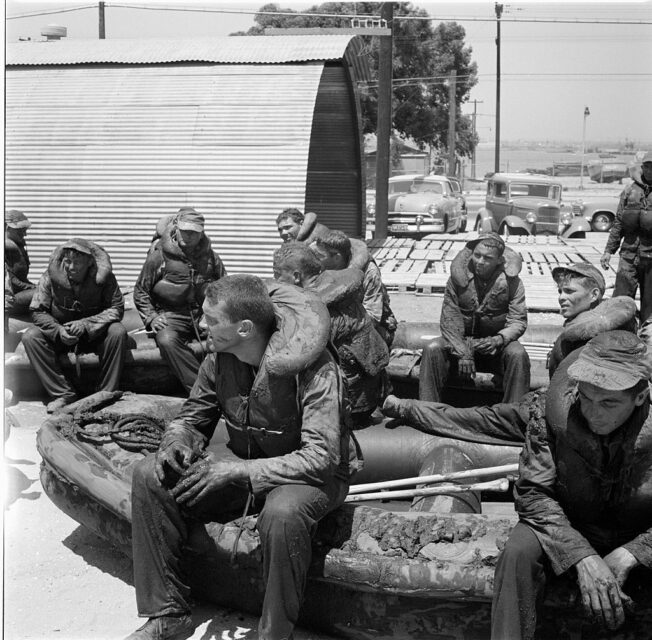
Like many other celebrities of the era, William Hopper enlisted in the US Navy upon the country’s entry into the Second World War. He’d originally joined the Coast Guard, before volunteering with the Office of Strategic Services (OSS).
Hopper then became a frogman with Underwater Demolition Team (UDT) 10. His unit was sent to Maui, where they received special training with the OSS Maritime Unit. They specialized in reconnaissance and maritime sabotage.
When their training was complete, UDT 10 was sent to the South Pacific. They participated in five amphibious operations, which included the Ulithi landing, missions on Peleliu and Angaur, pre-invasion activities in the Lingayen Gulf and the Battle of Leyte. Hopper also set their official, but unintentional, record for being underwater.
The actor later explained how this came about:
“It was the day before the troops were to hit the beach and we had been assigned the pleasant task of swimming into the bay and removing the floating markers the Japanese had secured to the ocean floor and upon which they had zeroed their mortars and machine guns. Every time we stuck our heads above the surface the [Japanese] gunners would pour everything they had at us. Needless to say the bottom of that bay looked pretty good to us – oxygen or not.”
The actor was really good at being a frogman, and the position seemed to please his mother. “I guess my belonging to Team Ten was the first thing I ever did that pleased her,” he once said. For his efforts during the war, Hopper earned the Bronze Star with Valor, as well as the Asiatic Pacific Medal with five battle stars.
Trading acting for another career
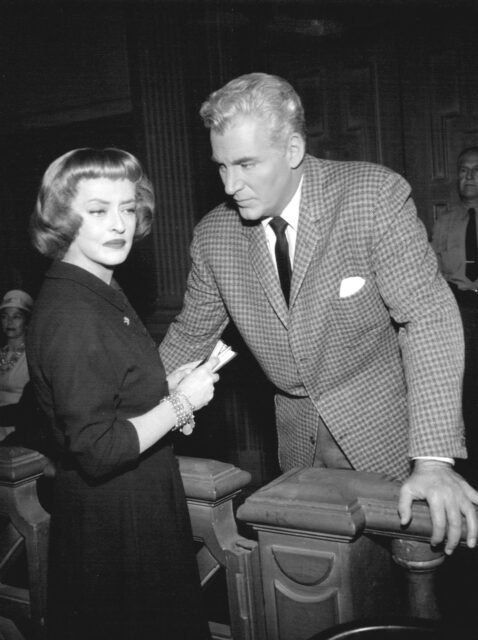
Upon returning to the US, William Hopper didn’t return to acting. Instead, he settled down with his wife, Jane, and got a job as a car salesman. He remained in this position for eight years – but not because he was any good at it. For the most part, he was pretty lousy at selling cars, but his fame and family connections were enough for his boss to keep him around.
It wasn’t until 1953 that director William Wellman approached Hopper and convinced him to return to acting by accepting a part in his film, The High and the Mighty (1954). He later shared how he was cautious about whether this was his mother’s doing.
“When it appeared Wellman was serious, I asked him if he knew whose son I was. He ignored me,” Hopper explained. “I was so lousy, so nervous, I didn’t even know where the camera was. But somehow Billy got me through. Afterward, I thanked him. He said, ‘Thank me, my foot. After this, you’re going to be in every picture I make.’ I didn’t believe him.”
True to his word, Wellman had Hopper star in two more films, Track of the Cat (1954) and Good-bye, My Lady (1956). He went on to star in others as well, including the role as the emotionally distant father of Judy, played by Natalie Wood, in 1955’s Rebel Without a Cause, notably starring James Dean.
William Hopper lands an important role in Perry Mason
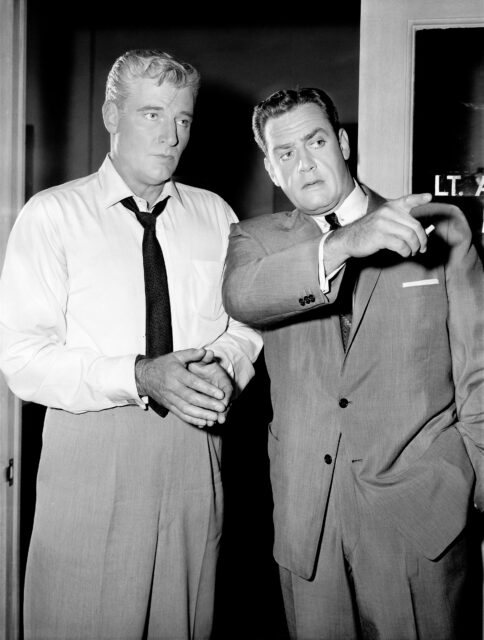
Later, William Hopper took on the role of private investigator Paul Drake in the TV series, Perry Mason. This arguably became his most iconic role, with him playing the right-hand man to the show’s titular character, portrayed by Raymond Burr. For his acting on the show, Hopper received an Emmy Award.
The series ran for nine seasons before it was eventually canceled. It marked one of the final acting gigs Hopper would take on, as he refused other offers afterward. The only other acting credit he agreed to following Perry Mason was in Myra Breckenridge (1970). Unfortunately, he never got the chance to see it, as the film premiered three months after his death.
More from us: Esmond Knight: The British Actor Who Was Injured During a Battle with the German Battleship Bismarck
Hopper was known to be a chainsmoker, which likely impacted his health. On February 14, 1970, he was taken to Desert Hospital in Palm Springs, California after suffering a stroke. Three weeks later, on March 6, he died of a heart attack at the age of 55.
